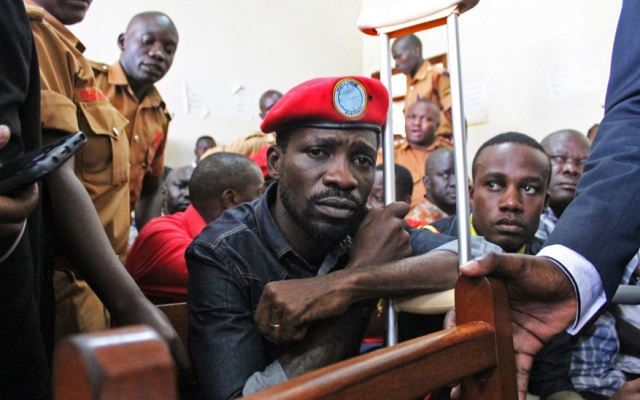
ISO boss, Security minister face tough questions
Kampala, Uganda | RONALD MUSOKE | Ugandan human rights activists say as much as they support the government in cracking down on criminals, the security agencies must act within the confines of the law while performing their duties.
While speaking at a recent engagement with the Uganda Police, Prisons, the Uganda Human Rights Commission and several civil society organisations on experiences of existing initiatives to address pre-trial detention in Uganda, Dr. Livingstone Sewanyana, the executive director of the Foundation for Human Rights Initiative (FHRI) said unlawful pre-trial detention remains a big challenge in Uganda.
MPs who sit on the human rights committee in Parliament recently put to task the Minister for Security, Gen. Elly Tumwine, to explain the continued existence of safe houses where Ugandans are allegedly being tortured by security operatives.
“We human rights defenders are of the view that the government needs to be very tough on crime but it does not mean deprivation of due process of the law,” Sewanyana said, “You cannot subject people to detention in ungazetted places because the minimum standards cannot be guaranteed there.”
“Safe houses have no room in Uganda’s criminal justice system,” he said, “If you want to detain anyone in a place other than prison or police stations, issue a statutory instrument declaring that these places have been designated for detention.”
Sewanyana noted that out of 59, 723 inmates across Uganda prisons, 28,324 are persons held in pre-trial detention. However, an unknown number of suspects is said to be languishing in illegal detention facilities around the country.
On Sept. 4, Gen. Tumwine confirmed that there are several safe houses but could not reveal how many they are, where they are and how many people are being held there. Tumwine, however, noted that although safe houses exist around the country, they are not detention torture centres.
“They are designed to provide space for the country to coordinate covert intelligence operations, de-brief and re-brief intelligence, as well as secure and protect witnesses in danger, especially criminals who have turned into witnesses,” he said.
“Safe houses are places used to secure persons who seek to be protected by the state for various security reasons; to manage hardcore criminals who require a long time to reform, especially those who have rescinded to criminality after serving long prison sentences, and need observation and surveillance,” he said.
Tumwine said as government, they do not condone torture of anybody in any place, but wants people to know that for the sake of security, the government keeps people who are afraid of harm.
But when members of the Parliamentary Committee on Human Rights insisted on visiting these illegal detention facilities, Tumwine said no legislator would be given access to the facilities.
Tumwine told the committee that Parliament needs to trust the government because “the people in safe houses are in good condition,” adding that they are also preferred places to live by some of them including reformed criminals such as Sobi(Paddy Serunjogi) who are reportedly helping ISO in fighting crime.
In yet another interview carried by the government-owned Sunday Vision on Sept. 22, Col. Kaka Bagyenda, the Internal Security Organization (ISO) Director General denied claims by MPs Latif Ssebagala (Kawempe North, DP), Kassiano Wadri (Arua Municipality) and Muhammad Muwanga Kivumbi (Butambala County) that ISO runs safe houses from which it tortures suspects.
Kaka said some of the alleged victims of torture who appeared before the parliamentary Committee on Human Rights and narrated harrowing tales “were paraded by some political elements who want to achieve their own selfish motives and that this would not derail him from ensuring the security of the country.”
 The Independent Uganda: You get the Truth we Pay the Price
The Independent Uganda: You get the Truth we Pay the Price






please that is not right
Even the best dancer will one time leave the stage. So when we keep denying access to find out what happens at and in these Safe houses, I believe time will come when we shall get to know. Security wants to preserve their status quo but just like the Nalufenya case, we shall know and time will come.
It is just not fair to keep denying everything and attributing it to the complainant but it is important to give a benefit of doubt and not bluntantly struggle to blind the seeing.